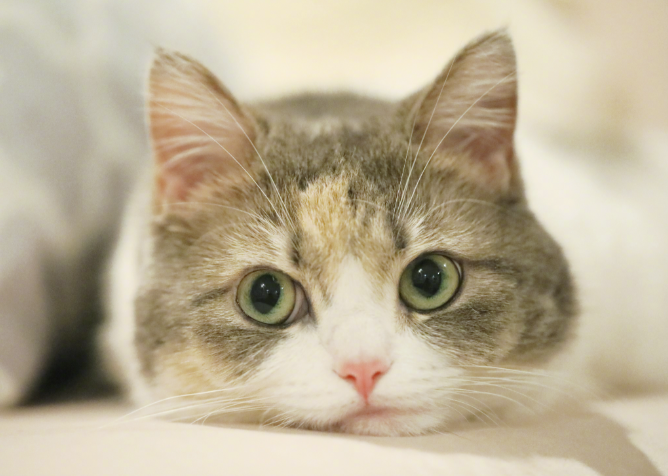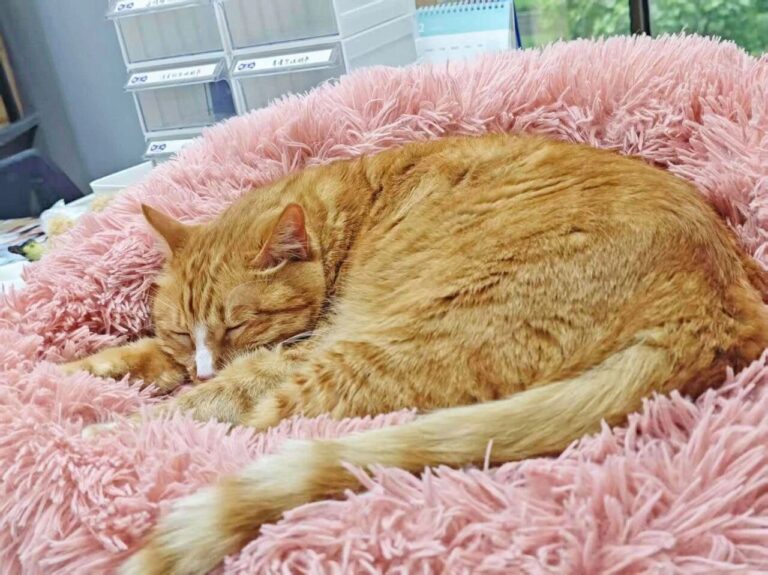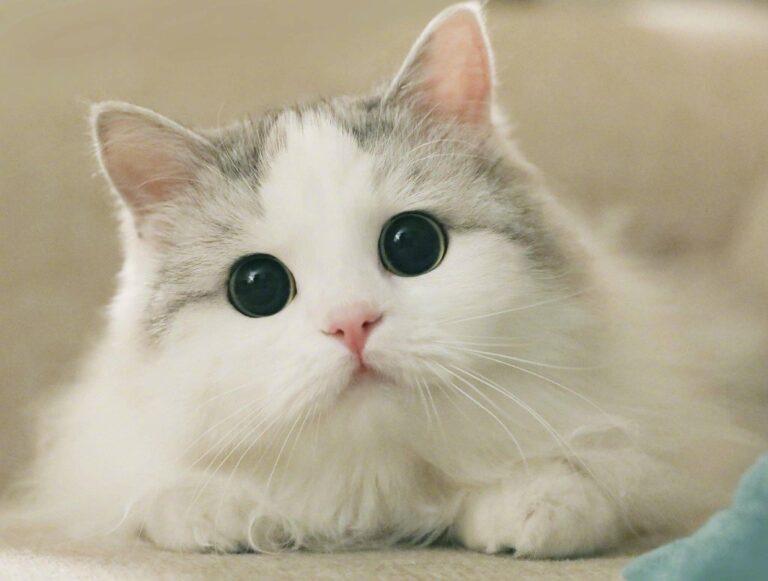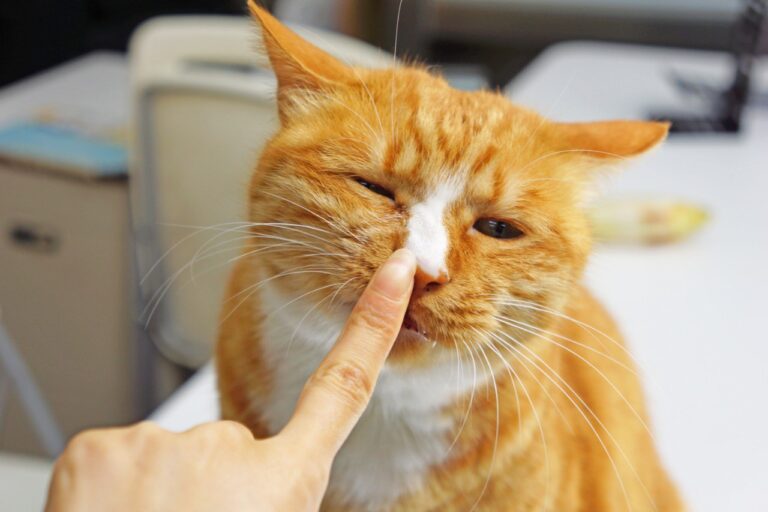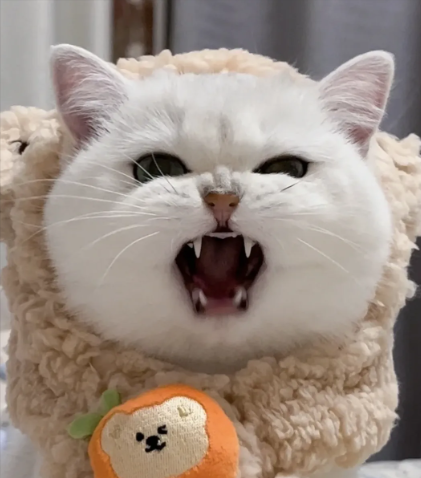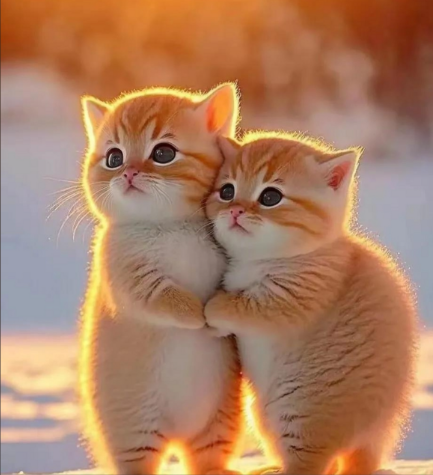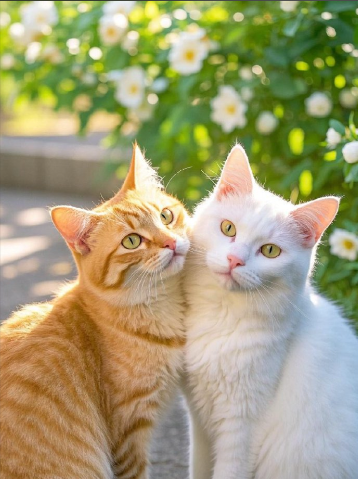Why do cats lick themselves after eating?
Everyone has probably noticed that cats start to clean themselves after eating, licking themselves constantly.
We all know that grooming is a cat’s most primitive instinct. It’s the first behavior they learn from their mothers.
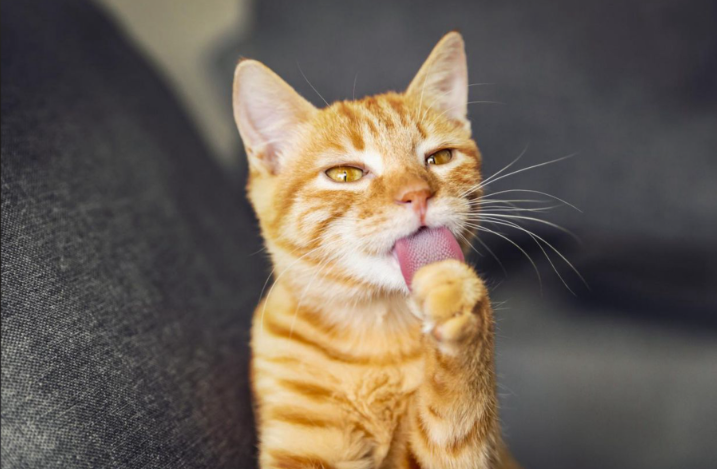
But why do cats groom themselves after meals?
Today, let’s discuss the reasons cats lick themselves after meals:
Reasons for Licking Their Mouths
Some kittens lick their mouths before feeding themselves meat. This indicates they’re quite interested in the food and are even looking forward to it.
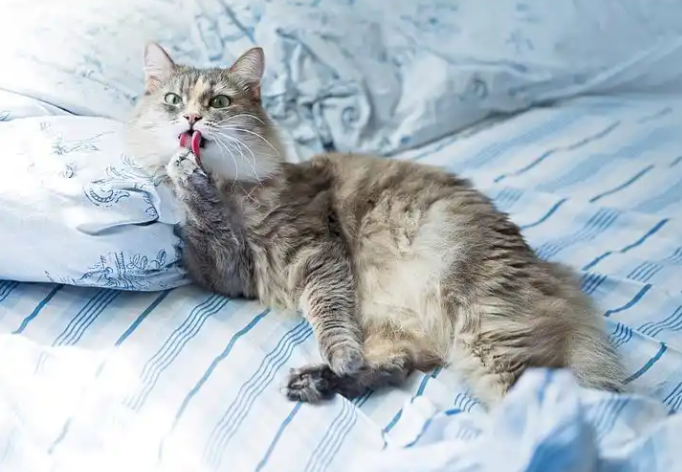
Cats also lick their mouths after eating.
This is to clean any food stuck around their mouths, just like humans lick their mouths after eating.
After all, the mouth is the area that needs to be cleaned most after eating, and it’s also the easiest place to clean—without the help of claws.
If the cat does not clean the food residue around its mouth, the food residue and food oil will easily clog the hair follicles. Moreover, after being contaminated with dirt, it will cause bacteria to grow and cause infection.
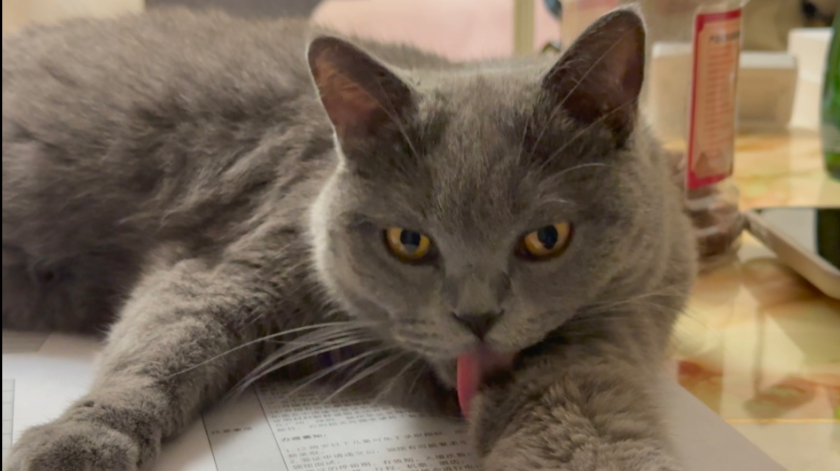
Reasons for Licking Paws
Cats often begin licking their paws to clean their faces after licking their mouths.
They use their paws to wipe away dirt behind their ears and cheeks. Once the head area is thoroughly cleaned, many cats take the time to thoroughly clean their paws, including those hard-to-reach areas between their fingers.
This helps cats completely remove food odor.
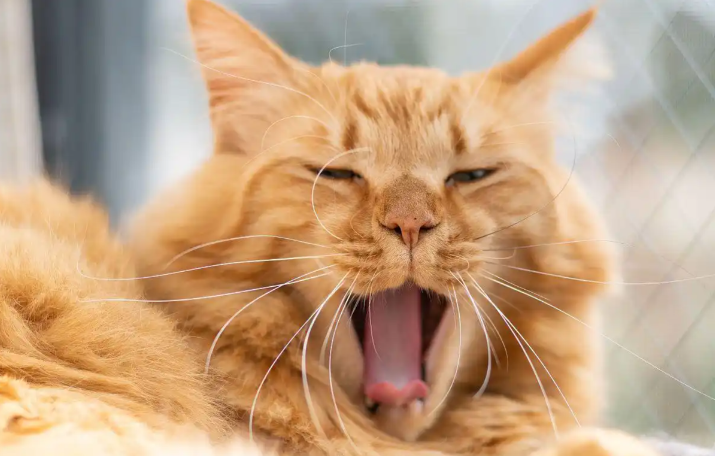
Why do cats need to remove food odor?
It’s a primal instinct. Cats’ ancestors needed to remove food odor after eating to avoid attracting larger predators. This became a survival habit.
While cats today no longer worry about encountering larger predators, grooming after meals is still a way for them to maintain overall hygiene.
How do cats lick themselves clean?
Can cats really clean themselves by licking themselves?
The answer is yes, thanks to the special features of their tongues.
Come, let’s take a look at a cat’s tongue:
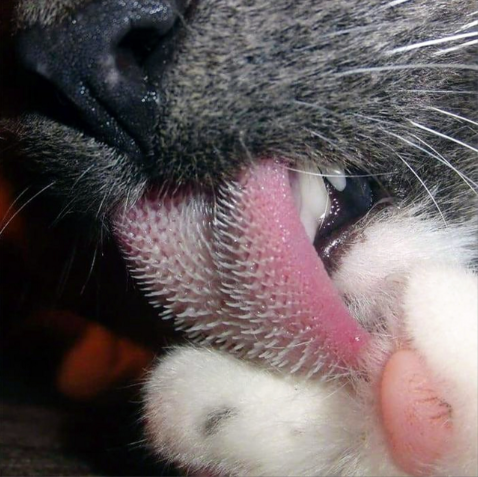
Don’t they look terrifying? Those densely packed barbs!
Anyone who’s been licked by a cat has experienced this pain!
These barbs are called highly keratinized filiform papillae, and they’re distributed all over the tongue.
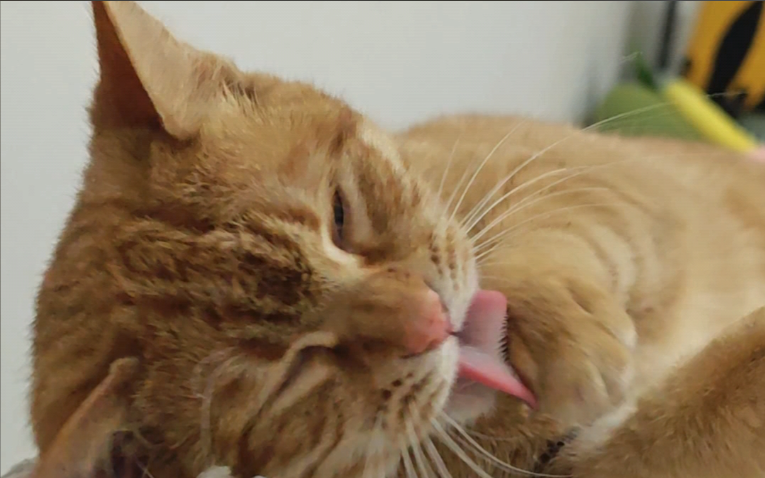
These barbs are very important to cats:
① They help them eat, allowing them to firmly grasp food and put it into their mouths.
② They protect their tongues. The highly keratinized barbs act as a protective shield, making them less susceptible to puncture wounds when chewing on hard objects.
③ They help cats groom. The dense barbs act like a comb, easily removing debris, dirt, and excess fur.
The significance of cat licking
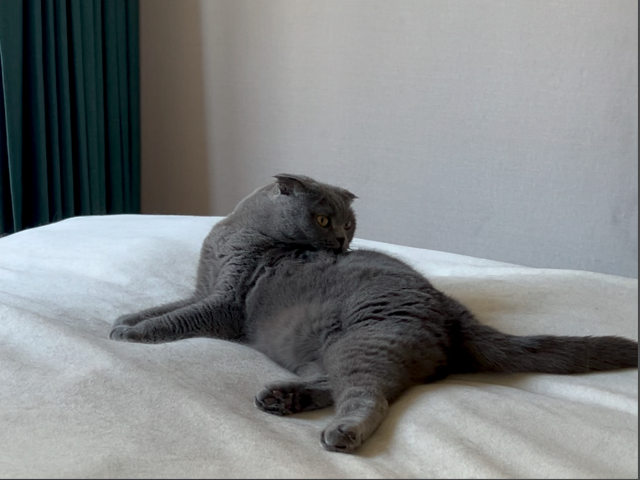
Licking is essential for cats!
① Licking helps cats maintain healthy skin:
It removes dead hair, dirt, and stains from their fur, removes fallen hair, prevents tangles, and licks away dandruff, maintaining normal skin metabolism.
In addition, grooming also has an important function: it removes parasites from the body, such as fleas.
② Licking can calm cats: It’s a stress-relieving and relaxing behavior for cats, just like some people bite their fingers to calm down when they’re nervous.
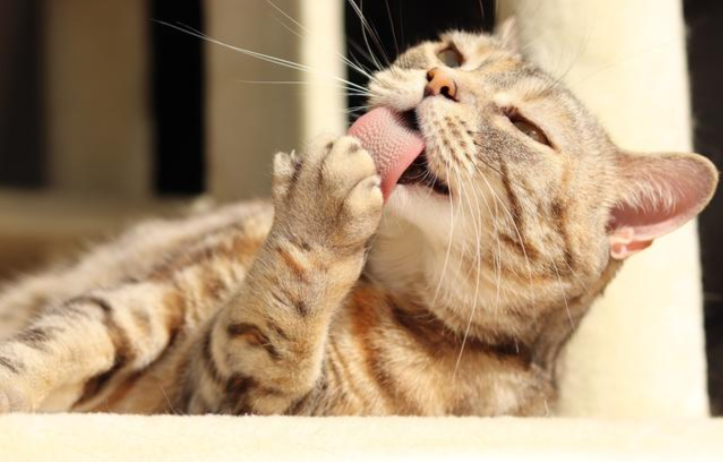
③ Licking is a social behavior among cats: it’s a way for cats to express friendliness and affection.
If a cat is close to another, they’ll lick each other’s fur. Of course, there’s also a saying: “A higher-ranking cat licks a lower-ranking cat.”
④ Licking can also indicate a cat’s health:
Excessive licking leading to alopecia or severe hair loss can indicate itching or psychological problems.
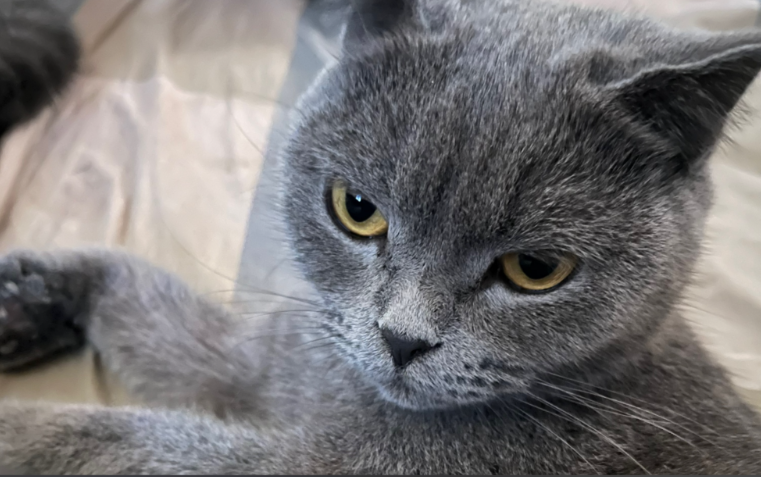
PS: There are many causes of itching, including skin diseases, parasites, and allergies.
However, infrequent or even absent grooming may indicate illness, leading to a lack of energy or motivation. Parents should monitor for any other abnormalities.
A healthy cat should maintain a regular self-grooming schedule. Appearance wise, the coat should be clean and normal, tangle-free, and smooth and shiny.
